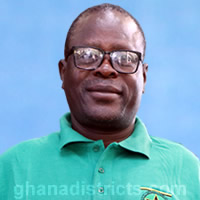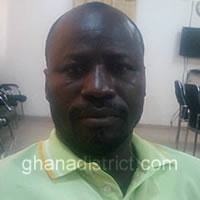Social services are those provided to the citizenry to enhance their general well-being and social welfare. These include education, health delivery, water and sanitation provision, housing, electricity and telecommunication services. All these services are provided within the Sissala East Municipal. Details of the types, location and quality of social services available in the district have been presented in the following sub-sections.
The formal health system in the Sissala east Municipal consists of 1 district hospital, 5 health centres (HC), 1 CHPS zone and 1 mother/child health and family planning (MCH/FP) clinic and ten community nutrition centres. In total approximately around 100 persons are employed as technical and non-technical health staff. The district has one permanently employed Ghanaian doctor and two Cuban doctors. Table 1.16 presents the summary of health personnel available in the district.
Apart from the mainstream health delivery personnel summarized in Table 1.16, there are other unorthodox health delivery units and/or personnel within the district. These include trained Traditional Birth Attendants (TBA), Community Based Disease Surveillance Volunteers (CBDSVs), Chemical sellers and traditional herbal units. These act as the alternative health institutions/facilities to complement the conventional health delivery system (See Table 1.17).
The above numbers of trained TBAs, Traditional Herbal Units and CBDSV have been reduced from 2004 as a result of the division of the old Sissala District into two where some of the people belong to the Sissala West District. 1.9.7 Public Health Services The District Health Administration (DHA) with the support of the various health facilities provides the following services Disease control Activities under this include
- Disease surveillance and management of epidemic within the district;
- Cold chain management;
- Immunization against the outbreak of various diseases;
- Data collection and analysis on the outbreak and spread of diseases; and
- Health education and promotion at the community level Eye care sendees
This is provided due to the prevalence of river blindness and other eye infections within the district. The district health administration therefore carries out outreach programs to the various communities to provide consultation and treatment to persons affected. HIV/AIDS and Other STDs Controls Due to the strategic position of the district close to the border between Ghana and Burkina Faso, there is a possible threat of the spread of HIV/AIDS and other STDs.
As a result, education on HIV/AIDS has been going on in the district at OPDs, in schools, outreach points and in the various communities. Some nongovernmental and community based organizations have been supportive in this direction. At the District Hospital, blood is screened for HIV and Hepatitis B. confirmed HIV cases are also provided with counseling services. Reproductive Health Activities undertaken in this area include the following;
- Schools/Adolescent health education and management;
- Health family planning campaigns; and
- Anti Natal Care, Post Natal Care and delivery services
- Nutrition and Child Health Services
Health professionals at various levels in the district provide wide range of services in nutrition and child health. These include growth monitoring, micro nutrient supplementation (Vitamin A supplementation and Iodated salt monitoring), immunization, exclusive breast feeding, nutrition education and the early introduction of appropriate complementary foods for young children. The above sums up to further facilitate the process of healthy growth and development of the citizens of the Sissala East Municipal.Apart from the above the DHA has special program areas which include;
1. HIV/AIDS
2. Tuberculosis
3. Malaria
4. Guinea Worm
5. Trachoma
6. Filariasis
National Health Insurance Scheme
The national health insurance scheme since its inception on the 7th of September, 2005 is making a remarkable achievement in improving the health care need of the people living in the Sissala east Municipal. In less than a year of its inception, the current registered number stands at 9247 representing 18.5% of the total population. With the ultimate aim of making medical care affordable and readily available to every one, majority of people (81.5) are yet to enrol on the scheme.
This was due to the fact that most people can’t afford to pay the premium that are charged at the end of every month while others discouraged due to misconception about the scheme which requires a effective education. That not withstanding, the office of the health insurance scheme has to cope with a number of challenges; these include:
1 Inadequate office accommodation
2 Low level of registration as a result of:
- Inadequate funds for education
- Wait and see attitude
- Over politicization
- The marriage system (polygamy)
3 Rising cost of claims by the providers
4 Non-adherence to the gate-keeper system 1.9.9 Problem of
Health Delivery
The major health care delivery problems in the district include:
- High maternal and child mortality rate
- Inadequate health staff and logistics
- High malnutrition of children under five years
- Low health service utilization at facility level
- Inadequate staff accommodation district health workers
- Inadequate in-service training for health staff
- Inadequate funding for programs
In terms of the prevalence of disease, the top ten diseases recorded in the Sissala East municipal over the period spanning 2003-2005
Date Created : 11/17/2017 2:10:15 AM





